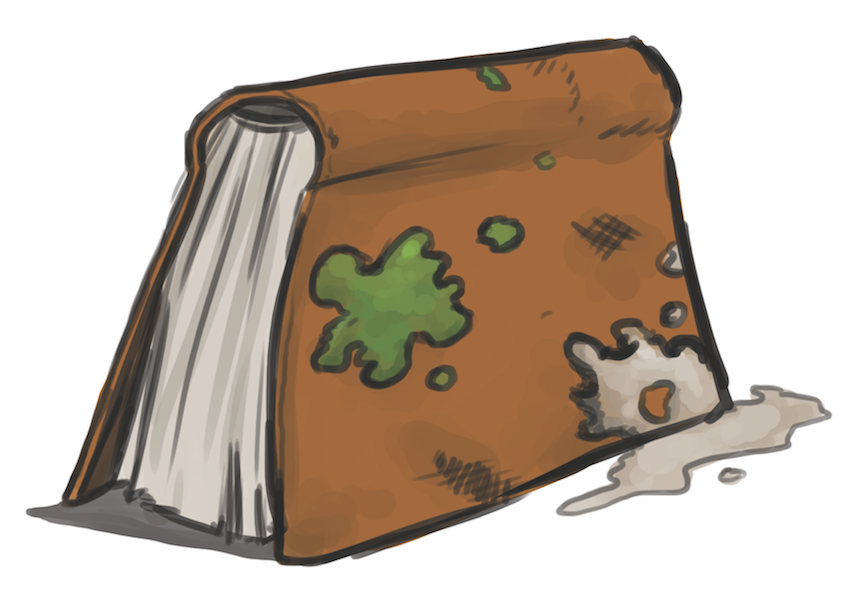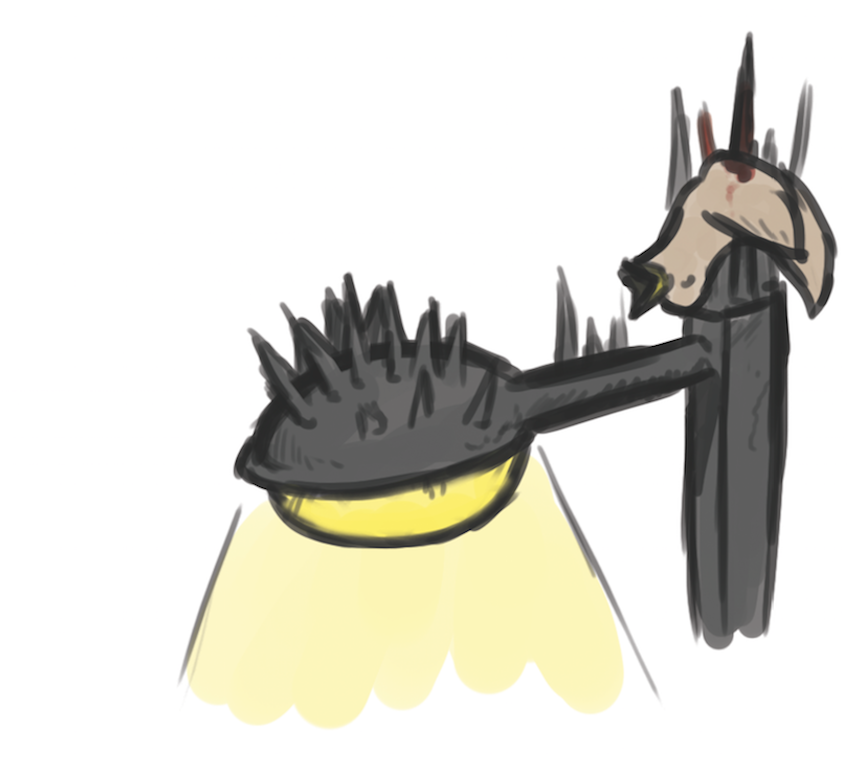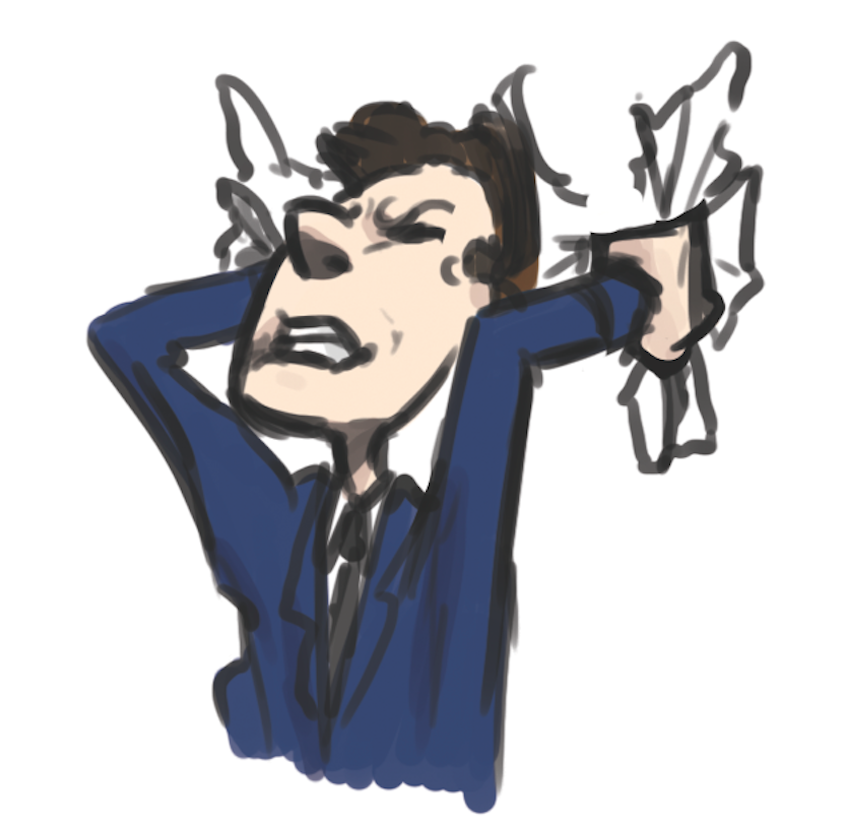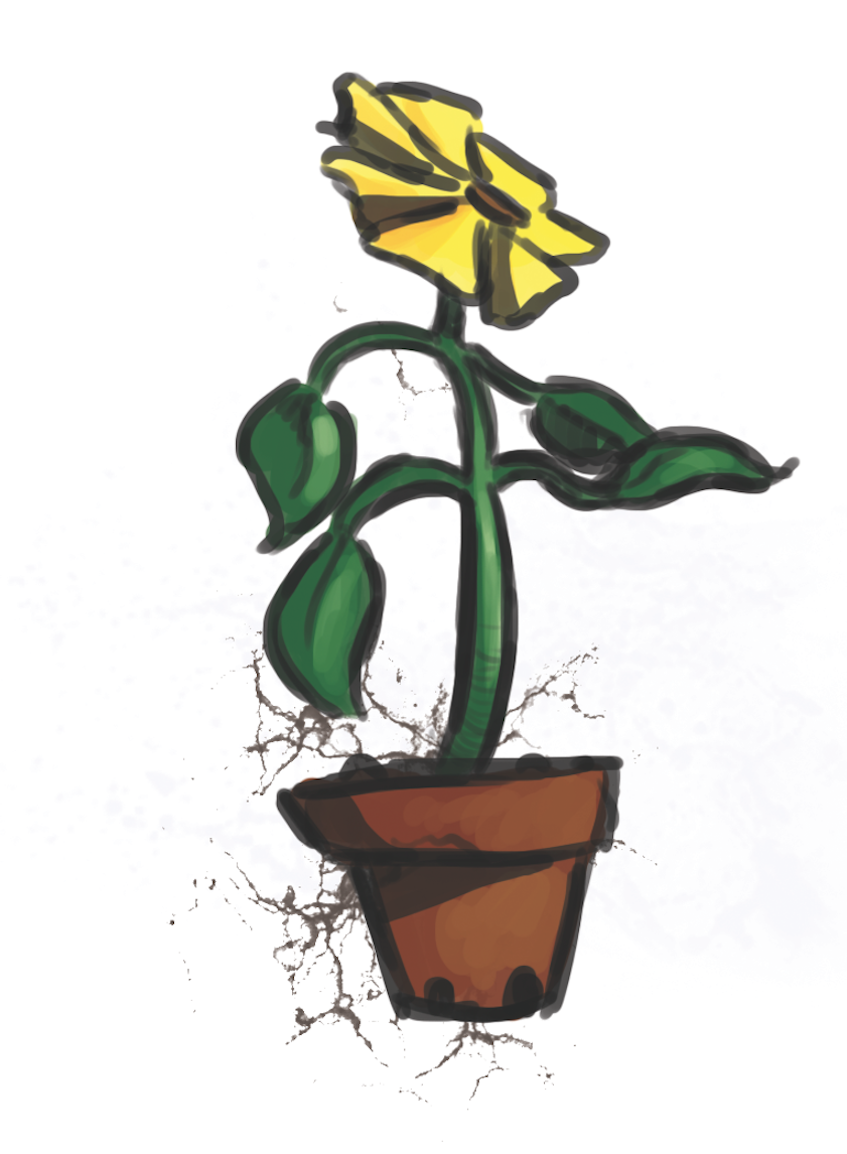Libraries aren’t for the sticky
I work at a library. Libraries are great because they’re full of books and anyone can sign them out. The only problem is that they’re full of books that anyone can sign out. Books come back with folds and tears and all kinds of awful things done to them.
Sometimes books are returned sticky. Sticky. Why are these books sticky? I don’t wanna know. But I do want to know why you can’t just clean the thing before you give it back. A damp cloth will not damage the laminated book! But one sticky book can stickify every other book it touches. It’s also unpleasant to put your hand in a pile of books only to have it covered in dank, mysterious slime.
Remember, these books are for everybody. Old ladies and children use the library. If you’ve created a sticky situation, be kind and wipe it up so you don’t make your local librarian cry.
Don’t skewer the birds
Given its BC-native foliage and naturesque logo (the gentle slope of a leaf), I’m surprised UFV is so negative and even violent toward birds on the Abbotsford campus.
Birds land on lamp posts. They don’t cause much trouble except for the occasional mess, which would happen whether or not the lamp post was an available perch. So while meandering along the path through the otherwise peaceful campus green, it’s unsettling to see the crown of long, sharp spikes atop each lamp post on the grounds.
Such spikes are not just a deterrent to birds landing there; they pose a physical threat. Even if there was a significant defecation problem, skewering the birds seems a bit extreme. It also belies the nature-friendly image UFV strives to project.
If I had to choose, I’d rather have to look at the occasional white streak, which can be pressure-washed, than the Iron Throne in miniature.
Job-hunting is an endurance test
Preparing to leave university life is an interesting feeling. Gone are many of the shackles of what once felt like a never-ending endurance battle. It’s a time of reflection and a chance to step back out of the bubble for a real and freeing analysis of life and meaning. But more importantly, it’s time to make money. It’s now time to pay bills, pay down that loan, and move on to the next chapter in life. And that means taking the step from school to work, which really means finding a job.
Looking for a job is frustrating. I’m not an adept job seeker, and likely not many students are, either. I’m pointing the finger at some of the key resources that would seemingly be the first places to look. Craigslist is terrible at listing any jobs that aren’t for administrative assistants or pizza deliverers. The Career Centre’s website isn’t helpful for students looking for jobs after graduation. And finally, many of the flashy-sounding short-term jobs come with restrictive requirements.
I admit that I’m new to this hunt. But looking for a job is really a full-time job in itself. It’s an all-new endurance battle.
Fake plants totally not succulent
When I approach a plant, I have a heart full of hope that I’ll get a noseful of fresh oxygen. I don’t want to choke on five years’ worth of dust instead. Fake plants are gross and get dusty. If I get a fake plant so I don’t have to water it, the fake plant is going to end up looking just as terrible as a dead plant. If I can’t remember to water my real plant, why would I remember to dust my fake plant?
I understand they are for decorative purposes. In fact, fake plants were once made in ancient Rome, Egypt, and China with materials like glass, rice paper, and metal. This was an art form, and when natural materials are used nowadays they are beautiful decorations! But polyester imposters from the dollar store? Not so beautiful. Fake plants are now usually made of plastic and are sold for cheap at large corporate stores. I’m sure the way they are produced is bad for the environment — otherwise known as the home of real plants.





